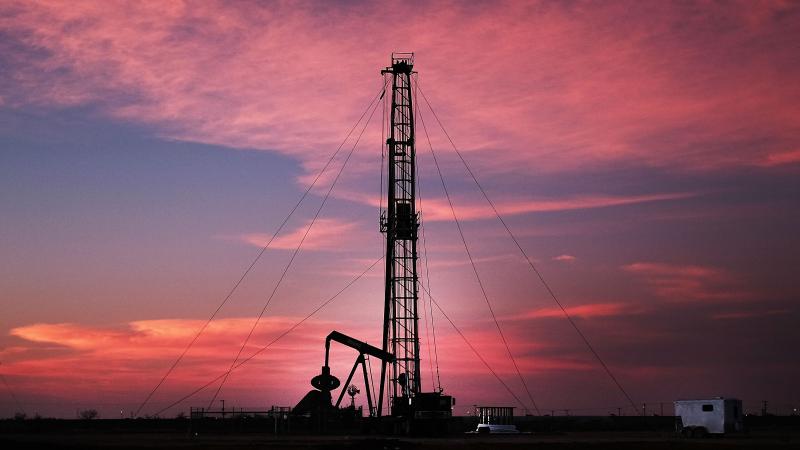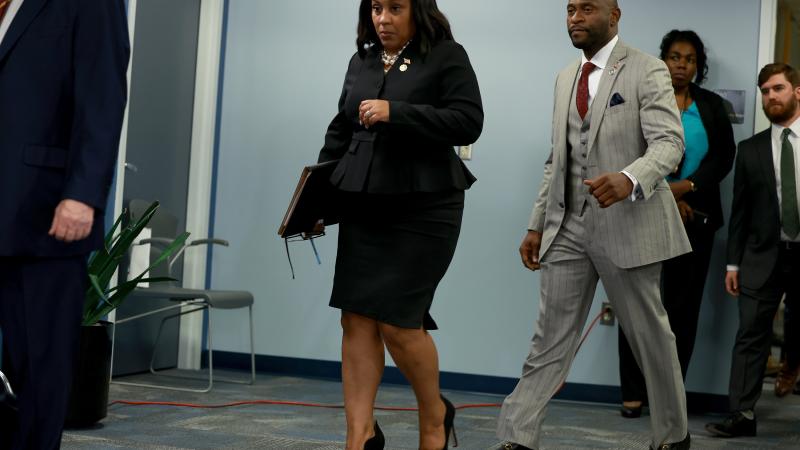Key Senator urges US to eliminate foreign reliance as it build clean energy economy
We are moving to a clean energy economy. And what we want is the United States of America to have that economy and not to rely on foreign countries.”
Increased clean energy technology, support of workforce training, suppressing wildfires, and the Farm Bill: all were topics of discussion for U.S. Sen. Patty Murray during stops across eastern Washington state this week.
The Seattle Democrat’s visits included a tour Wednesday of Big Bend Community College’s modern vocational/tech training center, led by BBCC president Dr. Sara Thompson Tweedy and accompanied by Rick Luebbe, CEO and co-founder of Group14 Technologies.
Afterward, Murray participated in a roundtable discussion with local elected leaders, educators, utility providers, and technology and economic development representatives. All of them, said Thompson Tweedy, are collaborating to boost educational training and clean energy development in the region.
Luebbe said his company intends to manufacture a silicon-based battery for electric vehicles that he predicts will recharge in five minutes and offer a 400-mile range – comparable to filling up a conventional automobile at a gas station and getting on the road again.
Based in Woodinville, Group14 has received a $100 million grant from the U.S. Department of Energy to help fund production of such technology. Another grant recipient is Sila, which is also building a factory in Moses Lake. Both plan to produce automotive-scale quantities of battery chemicals starting later next year. On their websites, both companies cite relationships with car manufacturers: Group14 with Porsche AG; Sila with Mercedes-Benz.
Moses Lake and Grant County are becoming attractive to emerging tech and manufacturing companies because of low-cost electrical power provided by the Grant County Public Utility District, irrigation water provided through the federal Columbia Basin Project, and generally lower costs for undeveloped land and labor compared to urban areas.
“We are moving to a clean energy economy,” said Murray. “And what we want is the United States of America to have that economy and not to rely on foreign countries … So, what do we do? We gotta build it here. And here in Moses Lake, we are seeing an opportunity to create that new clean energy economy.”
Murray, who chairs the Senate Appropriations Committee, spoke of project funding, investment incentives, tax credits, and workforce training opportunities offered through action by Congress and the Biden-Harris Administration on the $55 billion Infrastructure Investment and Jobs Act, the $280 billion CHIPS and Science Act to boost domestic semiconductor production, and the Inflation Reduction Act that includes $369 billion earmarked for energy security and climate change.
“That is all happening here in this region, and I’m here today because I want to hear how it was working and what the continued barriers are,” said Murray. “To me, it really is the issue of workforce training … So, how do we work to make sure that any barriers that are out there, we are removing them and getting people ready for the economy that is coming.”
Murray was in Pullman on Tuesday, joined by Secretary of Agriculture Tom Vilsack and 5th District U.S. Rep. Cathy McMorris Rodgers, a Spokane Republican, for the groundbreaking of a new $125 million plant sciences building that will house scientists from Washington State University and the U.S. Department of Agriculture.
Later Wednesday afternoon, Murray was in Wenatchee to hear about priorities for upcoming reauthorization of the Farm Bill, which takes place every five years. Federal support for agricultural producers and the challenges they face with climate change were discussed with local family farmers, the USDA’s Washington state director, and representatives from the state Department of Agriculture and commissions for apple, potato, hops, wine, and tree fruit growers, among others.
According to Murray’s office, Washington has over 35,000 farms, most of them family owned, which produce approximately 300 commodities and contribute to more than 164,000 jobs statewide. Growers here lead the nation in the production of apples, blueberries, hops, pears, spearmint oil, and sweet cherries, and are second in the production of asparagus, grapes, potatoes and raspberries. Dried peas, lentils and onions are among other top crops grown locally.
Washington is also one of the nation’s most trade-dependent states.
“Agriculture is a crucial part of our state’s economy … And what grows in Washington state goes all over the world,” Murray said in a news release.
She spoke of the need to continue sustainable farming practices and “robust” voluntary conservation programs, promotion of rural economic development, and continuing research to improve crop quantities and quality while lowering production costs and protecting commodities from insects, viruses, fungi and wildfire smoke.
Wildfire prevention and suppression were discussed Thursday during a briefing in Leavenworth with Chelan County firefighters, representatives from the Washington Department of Natural Resources and U.S. Forest Service, among others. Murray said the Bipartisan Infrastructure Law provides more than $14 billion for wildfire suppression and mitigation, including nearly $25 in funding in Washington state.















